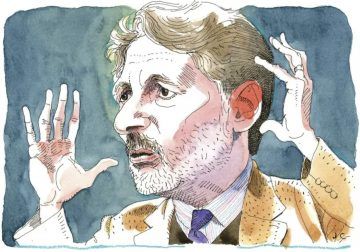Rashid Khalidi in The Nation:
 Seventeen years after his death, Edward Said remains a powerful intellectual presence in academic and public discourse, a fact attested to by the appearance of two important new books. After Said, edited by Bashir Abu-Manneh, offers assessments of Said’s vast body of scholarship by a dozen noted writers and academics. The Selected Works of Edward Said, 1966–2006, edited by Moustafa Bayoumi and Andrew Rubin, two former students, is an expanded version of The Edward Said Reader, which was published a few years before his death in 2003. The Reader offered us a full picture of Said’s breadth and influence as a public intellectual; the new collection is more than 150 pages longer and includes eight essays that didn’t appear in the earlier volume, plus a new preface and an expanded introduction. The newly included essays range from overtly political sallies to reflective meditations on the “late style” in music and literature that were published posthumously. Some of them, like “Freud and the Non-European,” reflect concerns that preoccupied him toward the end of his life and are among the most complex and subtle of his writings. Others remind us how widely read he was, how broad his interests were, and how penetrating his insights could be. Coupled with the reflections on his major works in After Said, they also give the reader a sense of the consistency of his politics, imbued with a universalist and cosmopolitan humanism that sat at the center of his literary and political writings.
Seventeen years after his death, Edward Said remains a powerful intellectual presence in academic and public discourse, a fact attested to by the appearance of two important new books. After Said, edited by Bashir Abu-Manneh, offers assessments of Said’s vast body of scholarship by a dozen noted writers and academics. The Selected Works of Edward Said, 1966–2006, edited by Moustafa Bayoumi and Andrew Rubin, two former students, is an expanded version of The Edward Said Reader, which was published a few years before his death in 2003. The Reader offered us a full picture of Said’s breadth and influence as a public intellectual; the new collection is more than 150 pages longer and includes eight essays that didn’t appear in the earlier volume, plus a new preface and an expanded introduction. The newly included essays range from overtly political sallies to reflective meditations on the “late style” in music and literature that were published posthumously. Some of them, like “Freud and the Non-European,” reflect concerns that preoccupied him toward the end of his life and are among the most complex and subtle of his writings. Others remind us how widely read he was, how broad his interests were, and how penetrating his insights could be. Coupled with the reflections on his major works in After Said, they also give the reader a sense of the consistency of his politics, imbued with a universalist and cosmopolitan humanism that sat at the center of his literary and political writings.
It is not surprising that so many people are still reading and grappling with Said’s ideas.
More here.
